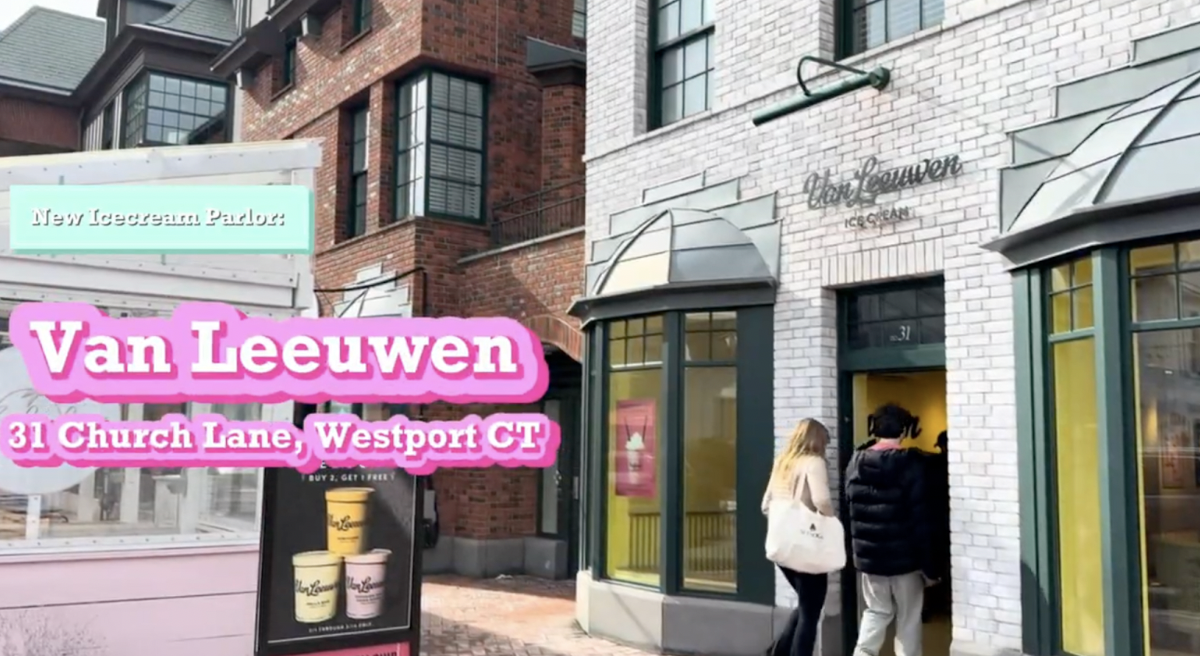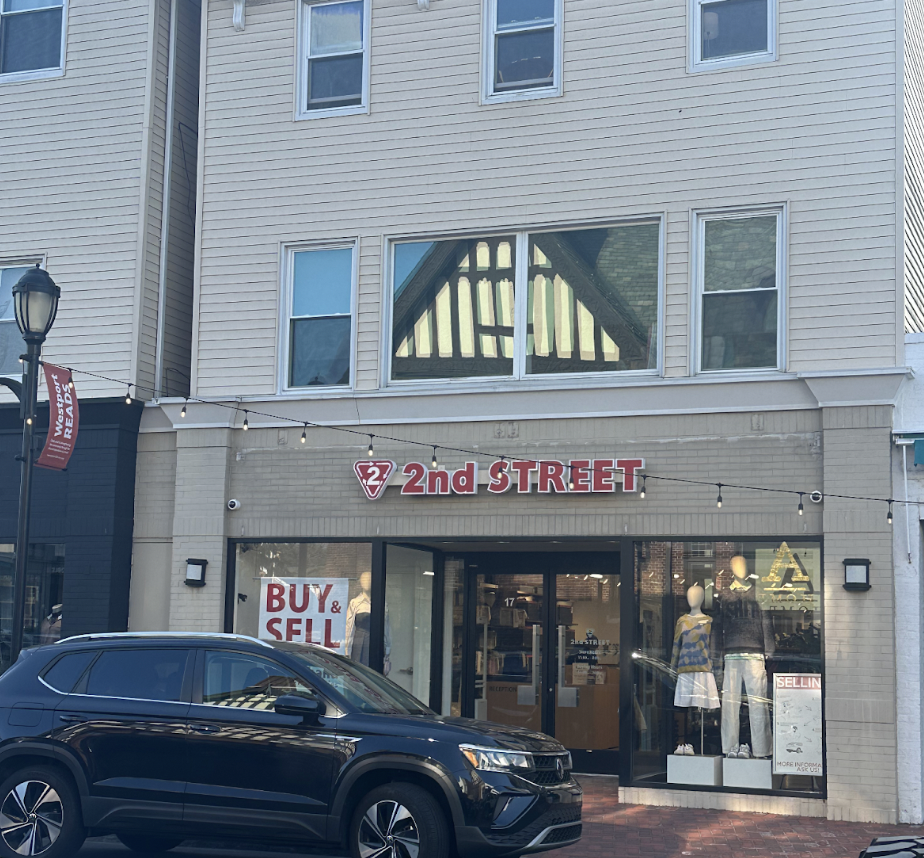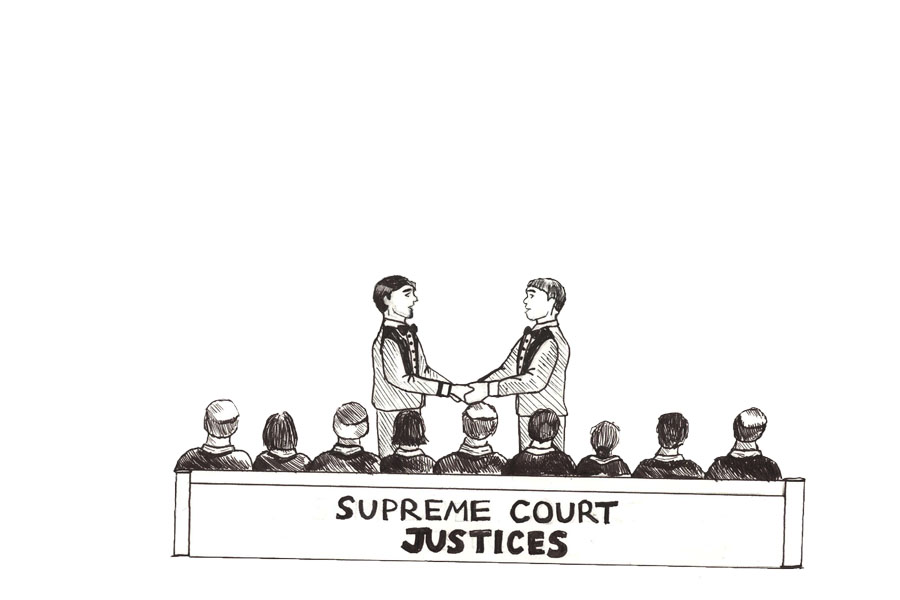In 2004, eight years after the Defense of Marriage Act (DOMA) was signed into law by Bill Clinton, 55 percent of Americans believed that it should be illegal for gay couples to get married.
Now, in 2013, as the constitutionality of DOMA is being decided in the Supreme Court, 58 percent of Americans believe that gay and lesbian couples should have the right to get married.
“The Constitution states that all men are created equal, and I think that applies to marriage as well as other rights,” said Jacqueline Devine ’13 of the Staples Young Republicans.
Rarely does a Supreme Court case gain widespread attention among a teenage audience, but the issues presented by DOMA have hit home for many younger Americans, and has especially raised public awareness and support for gay marriage within the Staples community.
Brad Payne ’13 of the Staples Young Democrats is excited about the progress being made in the gay rights movement and knows that the Court’s decision will have a significant influence over the lives of many students at Staples.
“To put it bluntly, there are a lot of proud, open gays here in Westport that we are all friends with,” he said. “A lot of Westporters want to see it legalized because we think our friends and family deserve to have the same rights and opportunities under that law, and we will make a big deal about it until they do.”
Payne claims that nothing would make the Young Democrats happier than to see DOMA shot down. “The club is pro-gay rights, and it is a cause many of our members are strongly connected to,” he said. “Several of our members proudly made their profile pictures the symbolic red equals sign to show their support after last week’s court cases.”
But for so many people in our community, the fight for equal rights goes far beyond the symbolic change of a profile picture.
For Christopher Fray, an openly gay Chinese teacher at Staples and the faculty advisor for the Gay Straight Alliance, the Court’s decision could mean a secure future, rather than one filled with uncertainty.
Fray married his husband on their 16th anniversary in 2009. Unfortunately, Fray’s husband has struggled with several health issues, leaving a scary future for a man who does not have the same financial or social protection that a man married to a woman would be entitled to.
“If he dies, I’ll have to sell my house and make do the best I can,” said Fray.
Currently, 60 percent of Americans are in favor of social security for same-sex couples and 64 percent are in favor of housing protection in medical emergencies, protections that could only be afforded if DOMA is deemed unconstitutional by the Court.
Fray recalls feeling hopeful after Clinton was elected after living with eight years of leadership under Reagan, who was, “not so good for the gays.” However, he felt somewhat betrayed when Clinton passed the “Don’t Ask Don’t Tell,” compromise, and went to sign DOMA into law.
“It felt strange for me because I thought he was an ally,” said Fray. “When a compromise is made, it is a compromise for the mainstream, but, when you’re part of the minority, it just feels like you’re being thrown breadcrumbs.”
Despite the setbacks, Fray is hopeful that the Court will make a ruling favorable to the Gay Rights movement and has faith that conservatives and liberals will be able to meet in the middle. “We are already so progressive as a state,” he said. “I think most people can realize that this is not a threat to heterosexual marriage.”
Glimmers of the bipartisanship that Fray is hoping for are shining through in Staples, with students who affiliate themselves with both political parties expressing a common disapproval of DOMA.
Devine is quick to point out that her liberal social views do not reflect the general opinion of her party but does acknowledge a growing number of fiscally conservative Republicans moving towards a more progressive social mindset. “It’s strange to be radically socially conservative during this day and age,” she said.
Fray, too, has noticed this shift. “I was shocked that so many conservative people were not so opposed to it,” he said. “It made me think about my own values and what is important and what could help the movement.”
Despite the social liberalism that is the norm in Westport, there are members of the community who believe that gay marriage is not an issue that should be touched by the federal government.
Jacqueline Chappo 15, president of the Young Republicans, believes that there are many more important issues that need to be addressed by the government.
“I think it is important for students to be educated on fiscal issues, which take precedence in our country today,” she said. “If students at this school took as much of an interest in fiscal issues as they do gay marriage and other social matters, our school would be far better educated in terms of our government.”
But for those directly affected by the legislation, nothing is more important than equality. August Laska ‘13 describes the marriage equality movement as being reflective of “the most important civil rights movement in our nation’s history.”
Laska deems the current state of inequality reminiscent of segregation before African Americans were granted equal rights under the law. “The system we have in place now is ‘separate but equal’ all over again,” he said.
Proponents of marriage equality know that their fight is not new nor is it close to being over. But the Supreme Court reviewing the constitutionality of DOMA in the first place is enough to keep those fighting hopeful.
“I think, honestly, that this is the proverbial ‘straw that broke the camel’s back’,” said Fray. “I hope the newer generation can grow up in a place where they can’t even imagine that this is what it used to be like.”













































